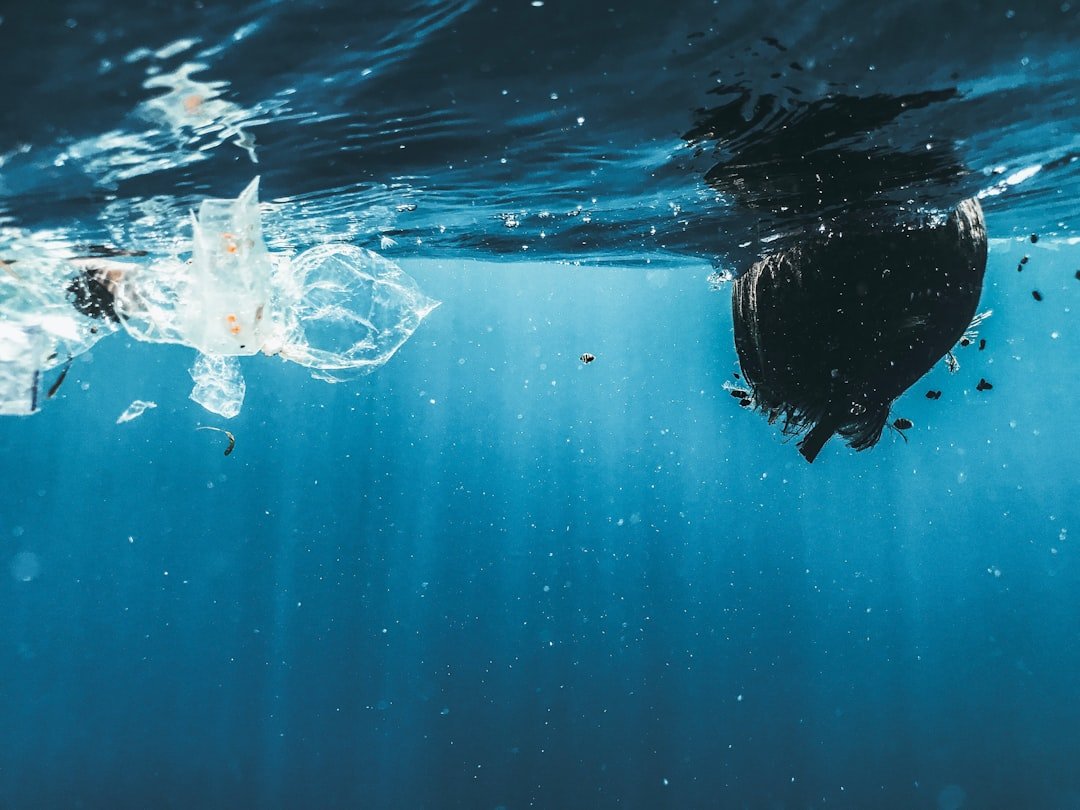The Effect of Plastic Bags on Marine Life Plastic bags, which are common in contemporary society, are now posing a serious risk to marine ecosystems. Numerous marine species are at fatal risk when these strong, lightweight materials end up in rivers and seas. For example, plastic bags are commonly mistaken by sea turtles for jellyfish, which are their main food source. Malnutrition, severe internal injuries, or even death may result from ingesting these bags. Birds & marine mammals are also at risk since they may suffocate or drown as a result of becoming entangled in plastic waste.
Key Takeaways
- Plastic bags have a devastating impact on marine life, causing entanglement, ingestion, and habitat destruction.
- Plastic bags accumulate in ocean gyres, creating massive floating islands of plastic debris that harm marine ecosystems.
- The environmental and economic costs of plastic bag pollution are significant, including damage to wildlife and ecosystems, and cleanup expenses.
- Efforts to reduce the use of plastic bags include implementing bag bans, fees, and promoting reusable alternatives.
- Consumers can choose alternatives to plastic bags such as reusable bags, paper bags, or biodegradable options to reduce plastic pollution.
Plastic bags have an impact on marine life that extends beyond individual species; they disturb entire ecosystems, influencing biodiversity & food chains. The negative effects of plastic bag pollution go beyond the direct harm that individual animals suffer. Ingesting plastic can cause harmful substances to bioaccumulate in the bodies of marine life. These poisons have the potential to ascend the food chain and eventually impact human health as well. The effects of plastic bag pollution spread throughout the ecosystem & affect human populations as people eat seafood tainted with microplastics and related toxins.
The disturbing truth is that plastic bags’ convenience comes at a high cost to marine life’s health and, consequently, to human health. Plastic Bag Buildup Ocean gyres, which are massive networks of revolving ocean currents, are well known for their propensity to accumulate enormous volumes of plastic debris, including plastic bags. Where currents converge & produce stagnation zones, these gyres serve as debris traps. With an estimated 1 trillion plastic particles floating in the waters between Hawaii & California, the Great Pacific Garbage Patch is arguably the most notorious example. This buildup is more than just an aesthetic problem; it is a serious environmental emergency. Because plastic bags are lightweight, they can be easily carried into these gyres by wind and water, which exacerbates the issue.
Marine ecosystems are significantly impacted by the buildup of plastic bags in ocean gyres. Over time, these bags decompose into smaller microplastics, making their removal from the environment more challenging. From larger fish species to plankton, a variety of marine organisms can consume microplastics.
| Country | Plastic Bags Used per Year (in billions) | Percentage of Plastic Bags Ending up in Oceans |
|---|---|---|
| United States | 100 | 1% |
| China | 80 | 2% |
| India | 30 | 3% |
The existence of plastic bags in ocean gyres is a clear indication of how badly humans affect the environment and how urgently efficient waste management techniques are needed. Plastic Bag Pollution’s Economic and Environmental Costs Plastic bag pollution has enormous environmental costs. In addition to the direct dangers to marine life, plastic bags also exacerbate ecological deterioration. Decomposition may take hundreds of years, during which time toxic chemicals may seep into the ground and waterways.
This pollution disturbs ecosystems and natural habitats in addition to harming wildlife. For instance, coral reefs are especially at risk because plastic waste can suffocate these essential structures, causing them to deteriorate & the biodiversity they sustain to disappear. The financial consequences of plastic bag pollution are also worrisome. Every year, governments & local governments spend millions on waste management and cleanup initiatives linked to plastic pollution. Taxpayers are frequently burdened with this expense, which takes funds away from other important sectors like infrastructure and education.
Also, declining marine health poses serious economic risks to sectors like tourism and fishing that depend on clean oceans. As beaches fill with plastic debris, fewer tourists may visit, which would affect local economies that rely on tourism. The need for quick action is highlighted by the significant and varied economic effects of plastic bag pollution. Efforts to Reduce the Use of Plastic Bags As awareness of the pollution caused by plastic bags has grown, numerous initiatives have been launched worldwide to cut back on their use. Single-use plastic bags are now prohibited or subject to fees in many nations as part of larger environmental programs.
For example, countries like Kenya have implemented some of the most stringent prohibitions in the world, & individuals found to be using or distributing plastic bags face steep fines. These steps are intended to encourage consumers to embrace more sustainable practices in addition to reducing plastic waste. In an effort to increase public awareness of the risks associated with plastic bag pollution, local communities have also organized clean-up days & educational initiatives.
Local residents’ sense of responsibility is fostered by grassroots movements, which frequently play a critical role in bringing about change at the community level. These programs foster a culture that values environmentally friendly decisions over convenience by involving citizens in conversations about sustainability and environmental stewardship. Alternatives to Plastic Bags for Consumers As people become more conscious of the negative impacts of plastic bags, they are looking for more environmentally friendly and useful alternatives. A sustainable solution that drastically lowers waste is provided by reusable bags made of materials like cotton, jute, or recycled plastics.
These bags are not only strong but also adaptable; they can be used for carrying personal belongings, grocery shopping, or even as chic accessories. Environmentally conscious consumers are increasingly choosing biodegradable bags in addition to reusable ones. When exposed to the elements, these bags are made to decompose more quickly than conventional plastic bags. For individuals who might not be prepared to fully commit to reusable options, biodegradable bags offer a more sustainable option, even though they still need to be disposed of properly to ensure they break down efficiently.
Customers can take proactive steps to lessen the pollution caused by plastic bags and to promote a healthier planet by investigating these alternatives. The Function of Government Regulations in Resolving Plastic Bag Pollution Government regulations are essential in resolving the problem of plastic bag pollution. Laws that prohibit or tax single-use plastics can drastically lower consumption rates and promote more environmentally friendly business and consumer practices. The use of plastic bags frequently declines significantly in nations that have put such laws into place quickly. For instance, within a few years of enacting a plastic bag tax, Ireland reported a 90% decrease in the use of plastic bags. Also, government programs can help fund the study & creation of novel materials that can replace conventional plastics.
In order to help create a future that is less dependent on single-use plastics, governments can invest in sustainable technologies and encourage environmentally friendly business practices. Governments, corporations, and communities must work together to develop comprehensive plans that successfully address the pollution caused by plastic bags. Corporate Responsibility in Reducing Plastic Bag Waste: Businesses have a big part to play in reducing plastic bag waste. A lot of businesses are starting to understand how important sustainability is for their brand image and customer loyalty in addition to ethical reasons.
Growing consumer awareness of environmental issues has led to a preference for companies that show a dedication to minimizing their ecological impact. Certain companies have taken proactive measures by completely banning plastic bags from their operations or by providing rewards to patrons who bring their own reusable bags. Target and Walmart are two retailers that have put in place initiatives that incentivize consumers to choose reusable products by offering discounts to those who do so. Businesses can significantly reduce plastic bag waste and appeal to environmentally conscious consumers by incorporating sustainability into their business models.
The Value of Education and Public Awareness in the Battle Against Plastic Bag Pollution Two essential elements in the battle against plastic bag pollution are education and public awareness. Many people are still ignorant of the scope of the issue or the environmental effects of their decisions. Customers can be empowered to make knowledgeable decisions about their purchasing habits by participating in educational campaigns that emphasize the risks related to plastic waste. Early development of this awareness is greatly aided by schools and neighborhood associations.
People are more likely to embrace sustainable practices and push for change in their communities as they gain knowledge about the negative effects of plastic bag pollution. In conclusion, combating the pollution caused by plastic bags necessitates a multipronged strategy involving people, businesses, governments, & educational institutions. Society can collaborate to find practical solutions if people are aware of the harm that plastic bags cause to marine life, how they build up in ocean gyres, & the financial & environmental costs involved.
It is possible to lessen the negative effects of plastic bag pollution and create a healthier planet for coming generations by implementing supportive policies, encouraging alternatives, reducing usage, and increasing public awareness.
Plastic bags in the ocean are a major environmental issue that requires a global effort to overcome. According to a related article on EcoGuardians, “Overcoming Conservation Challenges: A Global Effort,” addressing critical environmental issues such as protecting ecosystems is crucial in combating the detrimental effects of plastic pollution on marine life. By implementing policy responses to address climate change and food security, we can work towards a sustainable future where plastic bags no longer threaten our oceans. To learn more about this important topic, visit this article.



